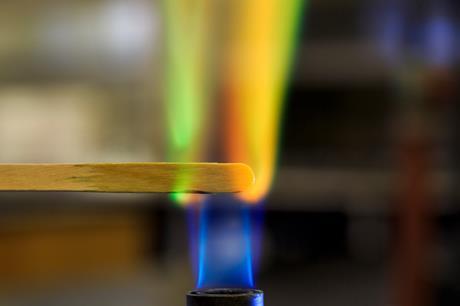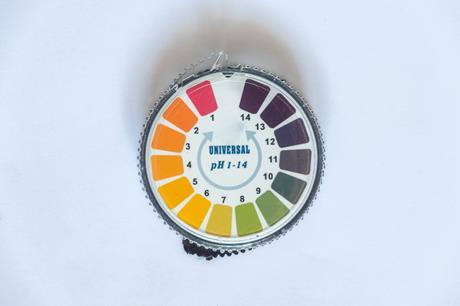- Home
- I am a …
- Resources
- Collections
- Remote teaching support
- Starters for ten
- Screen experiments
- Assessment for learning
- Microscale chemistry
- Faces of chemistry
- Classic chemistry experiments
- Nuffield practical collection
- Anecdotes for chemistry teachers
- Literacy in science teaching
- More …
- Climate change and sustainability
- Alchemy
- On this day in chemistry
- Global experiments
- PhET interactive simulations
- Chemistry vignettes
- Context and problem based learning
- Journal of the month
- Chemistry and art
- Classic chemistry demonstrations
- In search of solutions
- In search of more solutions
- Creative problem-solving in chemistry
- Solar spark
- Chemistry for non-specialists
- Health and safety in higher education
- Analytical chemistry introductions
- Exhibition chemistry
- Introductory maths for higher education
- Commercial skills for chemists
- Kitchen chemistry
- Journals how to guides
- Chemistry in health
- Chemistry in sport
- Chemistry in your cupboard
- Chocolate chemistry
- Adnoddau addysgu cemeg Cymraeg
- The chemistry of fireworks
- Festive chemistry
- Collections
- Education in Chemistry
- Teach Chemistry
- Events
- Teacher PD
- Enrichment
- Our work
- More navigation items
Teaching strategies for key curriculum topics (13–16)
Explore strategies for teaching key chemistry topics to 13–16 year olds
This course is designed to help you find new ways to support learners in understanding topics that are a crucial part of both UK and Irish curriculums. The course is comprised of two optional modules, covering strategies for different topics in chemistry.
At a glance
Upcoming dates:
Sign up to hear about future dates
Cost: Free for Teach Chemistry members
Session frequency: Fortnightly
Choose a module to get started

Module 1
Upcoming dates
Not currently available – get notified when new dates are added
Topics covered
- Chemical formulas, reactions and calculations
- Structure, bonding and properties of matter
- Energy changes in chemical reactions
- Industrial and environmental chemistry

Module 2
Upcoming dates
Not currently available – get notified when new dates are added
Topics covered
- Periodic table and groups 1 and 2
- Electrolysis
- Homologous series
- pH scale, acids and pH calculations

Module 1
Module 1 covers the following topics:
- Chemical formulas, reactions and calculations
- Structure, bonding and properties of matter
- Energy changes in chemical reactions
- Industrial and environmental chemistry
You will gain knowledge and skills for teaching these topics through guided learning discussions, in which you will explore strategies, ideas and classroom experiences with your peers and teaching experts.
Upcoming dates and registration
Module 1 is not due to run in the spring term
However, you can still:
- Sign up to hear about new dates when they become available

Module 2
Module 2 covers the following topics:
- Periodic table and groups 1 and 2
- Electrolysis
- Homologous series
- pH scale, acids and pH calculations
You will gain knowledge and skills for teaching these topics through guided learning discussions, in which you will explore strategies, ideas and classroom experiences with your peers and teaching experts.
Upcoming dates and registration
Module 2 is not due to run in the spring term
However, you can still:
- Sign up to hear about new dates when they become available
Additional information
This course is most suited to teachers who may be:
- early on in their career (but not a student or trainee)
- looking to add to their existing knowledge and confidence
- keen to gather new ideas and resources for teaching key topics.
The format of each module is a series of four sessions – you will complete these once a month. By completing the sessions, you will qualify for a certificate of attendance to add to your professional development portfolio/record.
We will also ask you to complete some short tasks outside of the sessions, which you will discuss with your course facilitator and fellow participants during the sessions. These will be provided approximately one month in advance of each session on the module event support page you will be given access to.
Support from your subject or school leadership team is a critical factor in successful professional development. When you sign up for a module, we’ll ask you to provide details of a senior member of staff who is responsible for your professional development provisions, eg head of chemistry/department, assistant headteacher, headteacher etc.

FAQs
Who is this course for?
This course is designed primarily for teachers in the early stages of their career, but won’t be suitable for trainees or student teachers.
How much does the course cost?
Nothing at all! The course is free to join, although places are limited. (If the course wasn’t fully funded it would cost £250!)
Is this course recognised? Will I receive a certificate?
Absolutely. The course is recognised CPD, so you will receive a certificate of attendance for your professional development portfolio/record once you have completed all of your chosen course’s sessions.
To qualify for the certificate of attendance, you must attend all sessions and complete all required tasks.
Do you record the sessions?
No, course modules are not recorded. If you are not available for the course dates currently advertised, watch this space – most courses are run repeatedly, on a termly basis.











